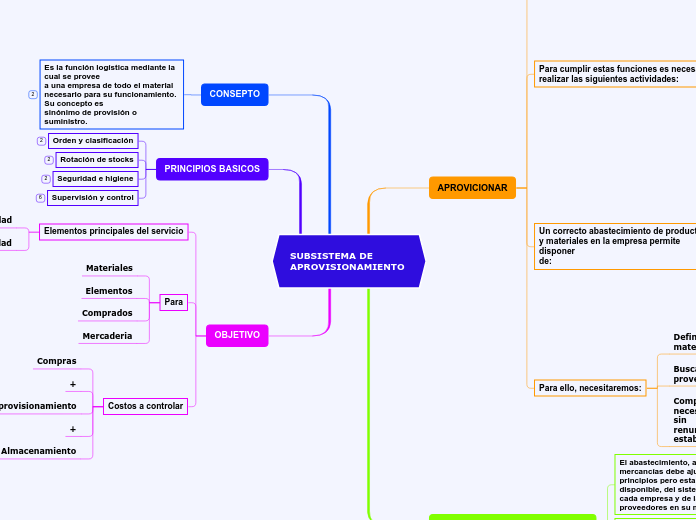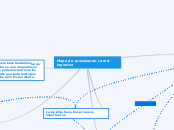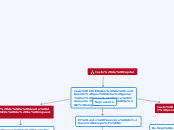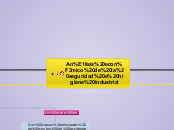SUBSISTEMA DE APROVISIONAMIENTO
The part of speech is a category to which a word is assigned according to its syntactic functions. In English the main parts of speech are noun, pronoun, adjective, determiner, verb, adverb, preposition, conjunction, and interjection.
OBJETIVO
A noun is defined as a person, place, thing or idea. Proper nouns always begin with a capital letter. Common nouns, which are general words, such as 'cars,' are not capitalized.
Costos a controlar
A noun which refers to a group of things/people.
Almacenamiento
Trasporte de aprovisionamiento
+
Compras
Para
Countable nouns are nouns that can be counted, even if the number might be extraordinarily high.
Uncountable nouns are nouns that come in a state or quantity which is impossible to count; liquids are uncountable, as are things which act
like liquids.
Mercaderia
Comprados
Elementos
Materiales
Elementos principales del servicio
Proper nouns are the names of specific people or places. They should always begin with a capital letter.
disponibilidad
Calidad
PRINCIPIOS BASICOS
An adverb is used to describe a verb, but it can also describe an adjective or another adverb.
Adverbs normally help paint a fuller picture by describing how something happens.
Supervisión y control
The intensifiers strengthen adverbs adjectives and adverbs and down- toners make them weaker.
down-toners
Fairly, Rather
intensifiers
Extremely, Very
Seguridad e higiene
Just, Afterward, Soon, Currently
Rotación de stocks
Always, usually, Never
Orden y clasificación
Carefully, Slowly
CONSEPTO
A numeral is a word or phrase that describes a numerical quantity.
Some theories of grammar use the word 'numeral' to refer to cardinal numbers that act as a determiner to specify the quantity of a noun, for example the 'two' in 'two hats'.
Es la función logística mediante la cual se provee
a una empresa de todo el material necesario para su funcionamiento. Su concepto es
sinónimo de provisión o suministro.
One, two..
EL MOVIMIENTO DE PRODUCCION
A preposition is one of the most exciting parts of grammar. A preposition is used to describe the location of something in relation to something else.
el empresario o empresaria debe estudiar con su equipo de trabajo cuál es
exactamente el movimiento o flujo que se necesita para cada tipo de mercancía y, en
función de eso, establecer sus políticas, procedimientos y formatos para regular,
organizar, el correcto movimiento de productos y materiales:
When a preposition consists of more than one word, it is called double preposition.
into, within, upto etc.
El abastecimiento, almacenaje y control de mercancías debe ajustarse a unas normas y
principios pero estará en función del espacio disponible, del sistema de producción de
cada empresa y de la disponibilidad de proveedores en su mercado en concreto.
When a preposition consists of one word it is called single or simple preposition.
Create sentences
in, at, on, to for, of, from, up, after, over, under, with, etc.
APROVICIONAR
A verb is an action word or 'doing' word that signifies movement in some way.
Para ello, necesitaremos:
A participle is a verb form that can be used as an adjective or to create a verb tense. There are two types of participles: Present participle (ending -ing) and Past participle (usually ending -ed, -d, -t, -en, or -n).
Comprar los elementos y los servicios necesarios al precio más bajo posible, sin
renunciar a una calidad mínima establecida.
Buscar y mantener relación con proveedores competentes
Definir técnicamente los productos y materiales que se necesitan
Un correcto abastecimiento de productos y materiales en la empresa permite disponer
de:
A modal is a type of auxiliary (helping) verb that is used to express: ability, possibility, permission or obligation. The main modal verbs in the English language are: can, could, may, might, must, shall, should, will, would.
Atender nuestra demanda en tiempo y forma y con un nivel de calidad adecuado.
Mantener existencias en cantidad suficiente para operar, fabricar o comercializar
nuestra oferta de productos y servicios.
Un flujo interrumpido de materiales, suministros, servicios necesarios para el
funcionamiento de la organización.
Para cumplir estas funciones es necesario realizar las siguientes actividades:
A linking verb connects the subject with a word that gives information about the subject, such as a condition or relationship.
Pagarlas.
Asegurarse que son recibidas en las condiciones demandadas.
Adquirirlas.
Buscarlas en el mercado.
Expresarlas en términos adecuados, desde el punto de vista descriptivo,
cualitativo y cuantitativo.
Planificarlas en tiempo
Consepto
A verb with its own meaning: a verb that is not an auxiliary verb.
Es una función destinada a poner a disposición de la empresa todos
aquellos productos, bienes y servicios del exterior que le son necesarios para su
funcionamiento.









